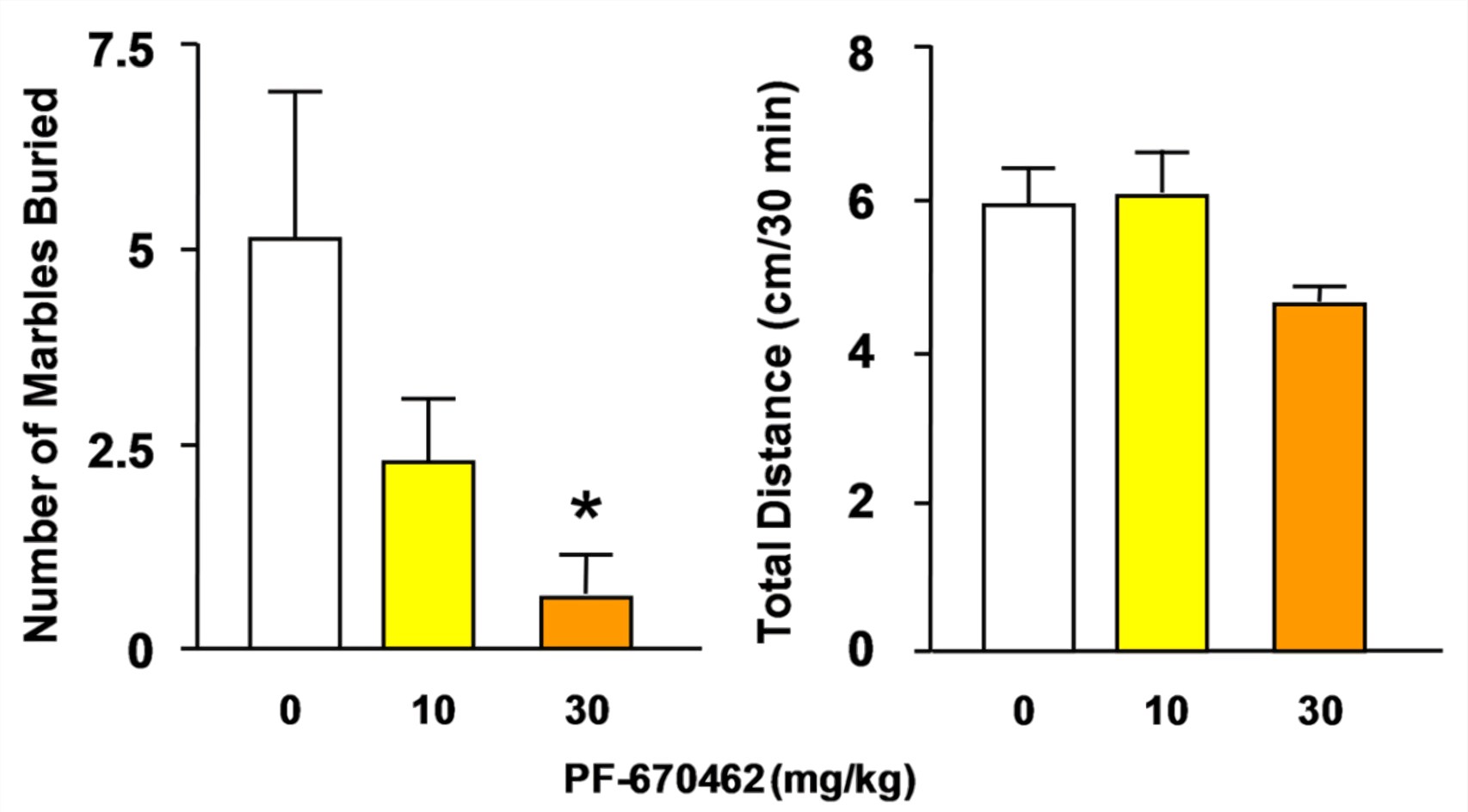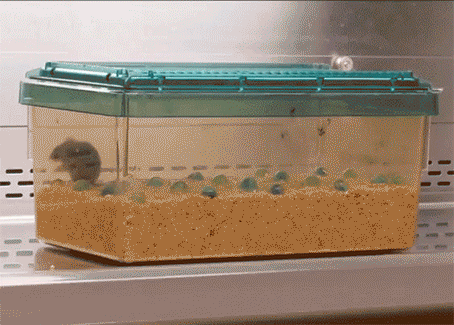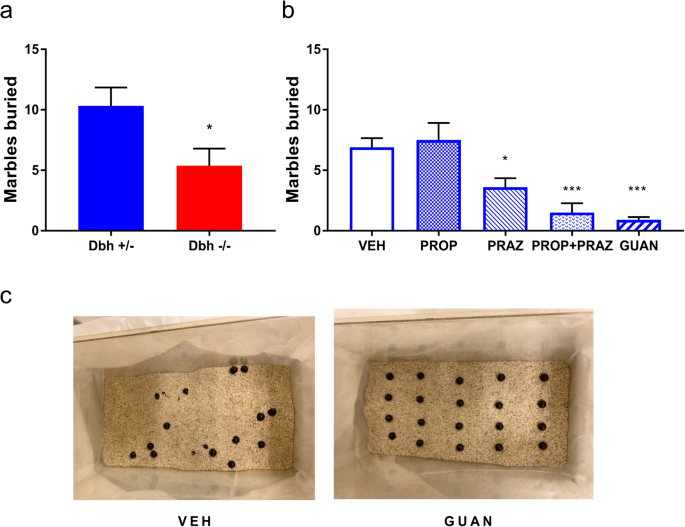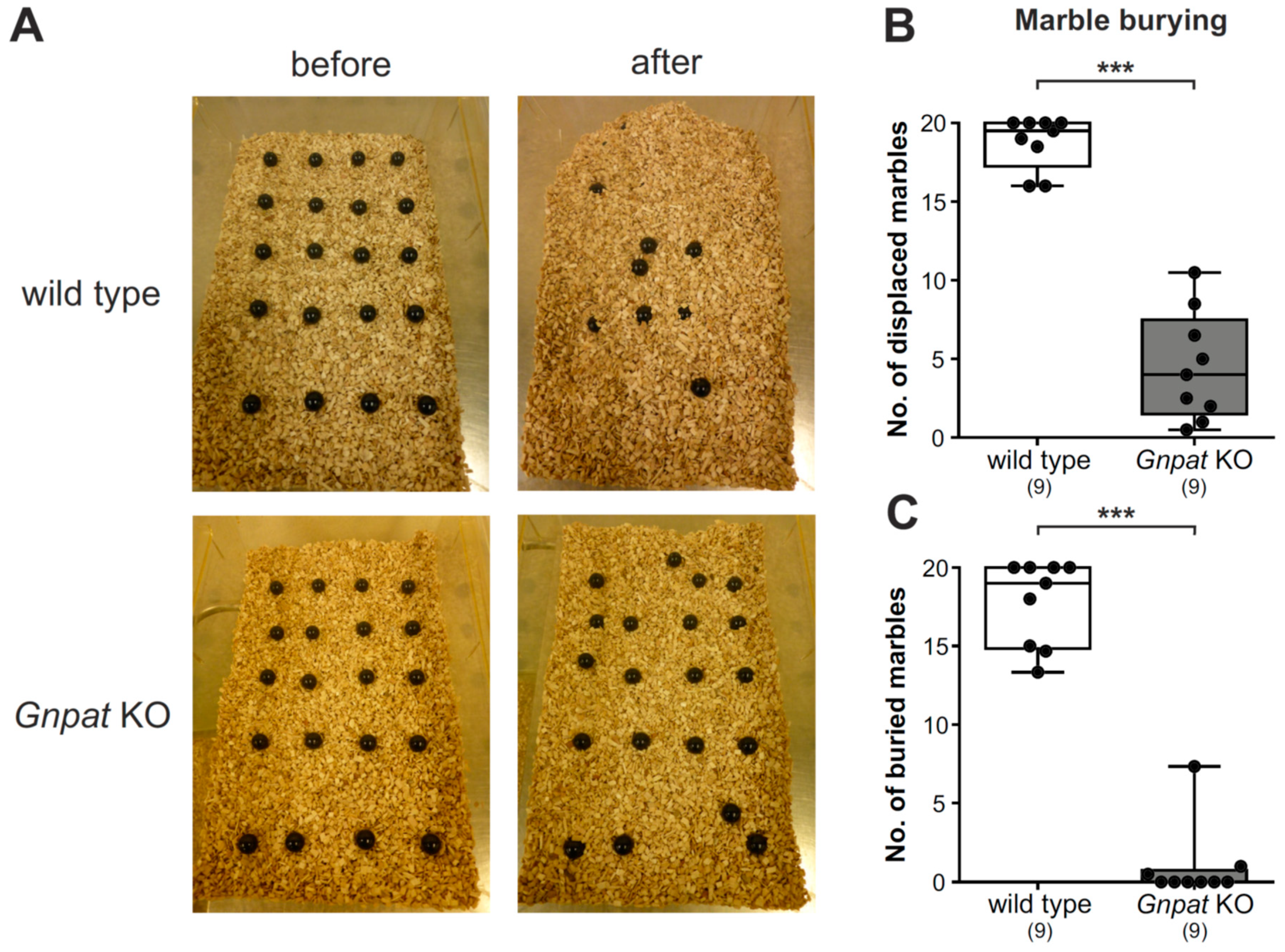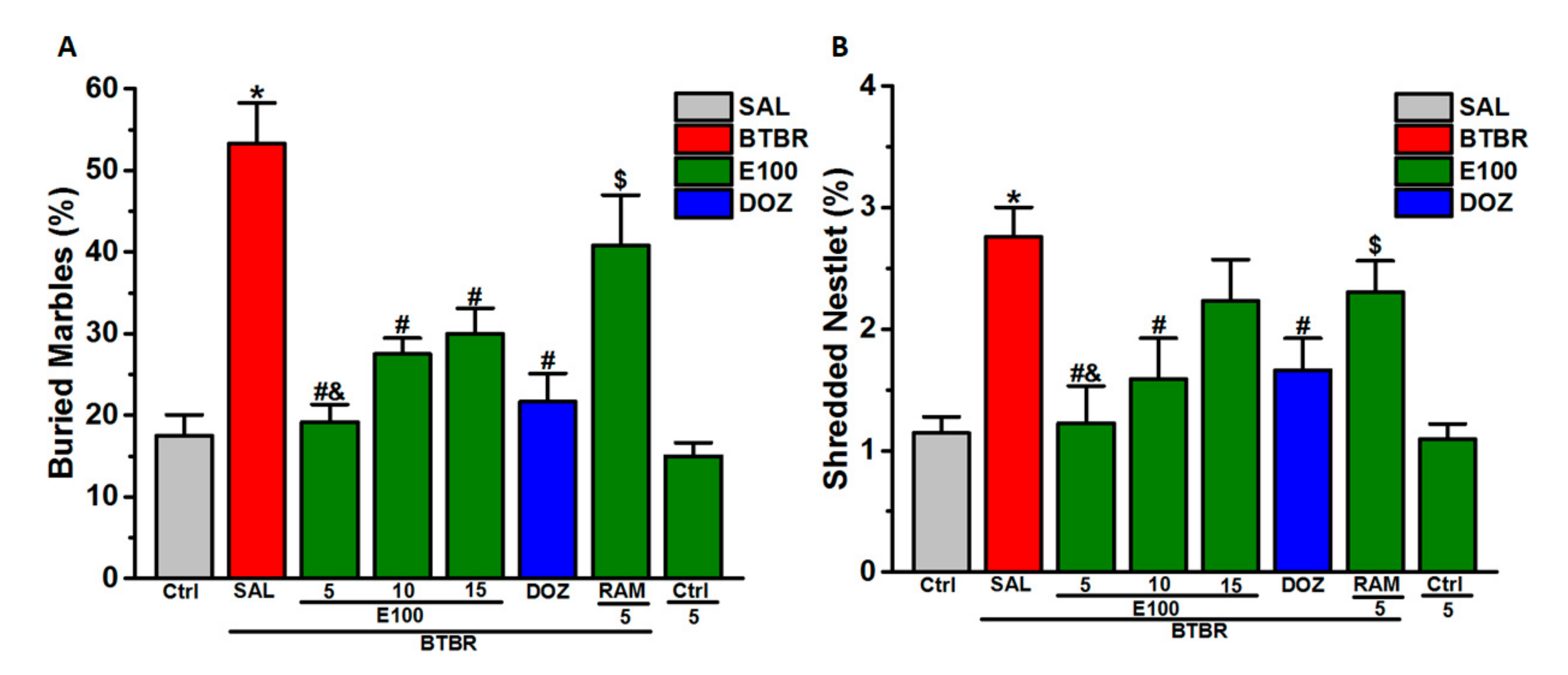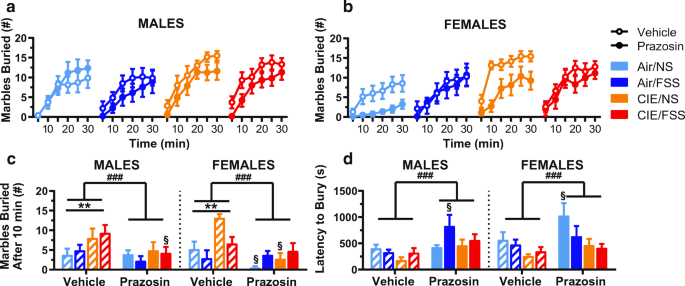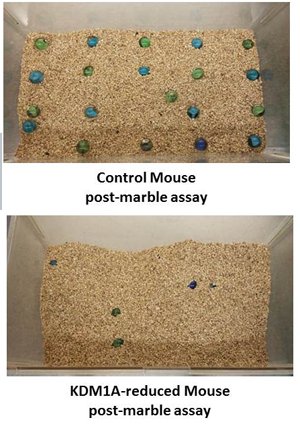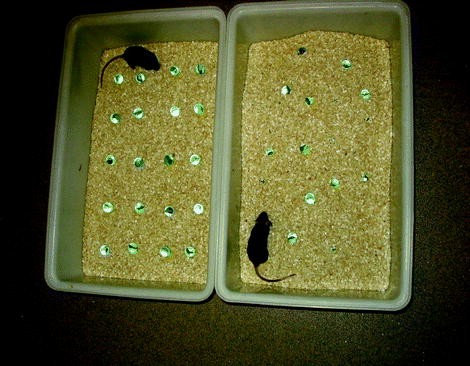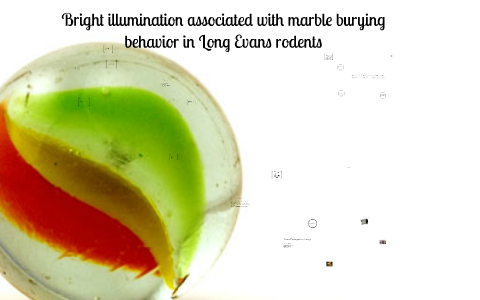When put in a cage with marbles mice with ocd like symptoms tend to engage in a high degree of repetitive behaviors including digging while mice with a high degree of anxiety tend to engage in a high degree of digging in.
Marble burying compulsive behavior.
Numerous animal models for evaluating compulsive like behaviors have been developed over the past three decades.
However modulation of marble burying by serotonin reuptake inhibitors prompted its link to obsessive compulsive disorder compulsive like behavior.
The marble burying test is a useful model of both obsessive compulsive like ocd behavior and or anxiety like behavior.
The marble burying and nestlet shredding tests are good examples of behavioral methods for studying repetitive and compulsive like behaviors in mice.
The marble burying behavior test is an acute test.
While widely used there is significant controversy over the interpretation of its results.
Considered together with the results from.
Disease head injury genetic modifications and treatment of mice with drugs can have profound effects on behavior.
Utilizing well characterized and validated approaches such as marble burying and nestlet shredding compulsive like behaviors can be documented accurately in mice as models of human obsessive compulsive disorder and autism spectrum disorder.
Perhaps the animal models with the greatest validity and ease of use are the marble burying test and the nestlet shredding test.
Marble burying is an animal model used in scientific research to depict anxiety or obsessive compulsive disorder ocd behavior.
However some investigators incorporate the sub acute treatment regimen as an essential component for screening anti compulsive agents.
It is based on the observation that rats and mice will bury either harmful or harmless objects in their bedding.
Marble burying is commonly used to test for repetitive anxiety and compulsive like behaviors 43 but the interpretation is controversial 44.
Both tests show excellent face construct and predictive validity for the human disorders they model 6 11.
Hallmark features of ocd patients are similarities and more prominent differences from anxiety disorders e g the absence of sex differences and resistance to spontaneous remission.
This study aimed to further dissect the deer mouse peromyscus maniculatus bairdii model of compulsive like behavior with respect to two persistent like behavioral phenotypes viz.
Both tests take advantage of the fact that the target behaviors occur spontaneously in mice.
Large nest building lnb and high marble burying hmb which may be relevant to understanding the neurobiology of different symptom dimensions in obsessive compulsive and related disorders.




